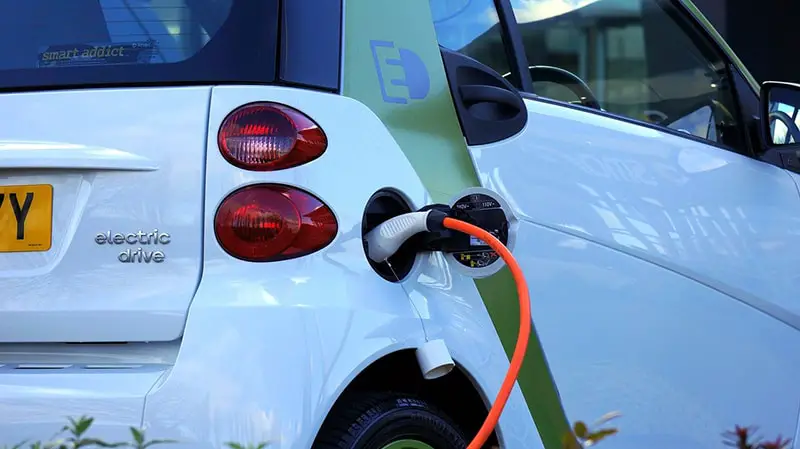Click here to get this post in PDF

This post has been written in collaboration with NewMotion.
Rapidly developing technology has been affecting industries around the world, and the automotive one is not an exception. Over the past decade, among other changes, it has seen a rise in the popularity of electric vehicles, which, according to some leading experts in the field, are set to take over in the foreseeable future. Despite these firm forecasts, some people are skeptical when it comes to their use and qualities. To dispel all doubts, it is helpful to understand how these futuristic cars function and what advantages they have over the fossil fuel ones.
The greatest difference between these two types of cars lies in their engine. Namely, most of the cars have an internal combustion engine that runs on fuel. Meanwhile, the EVs are equipped with an electric motor and a large rechargeable battery pack. The motor is powered by the electricity stored in the battery pack. How often do drivers have to recharge the battery and how long this process lasts, depends on the type of the car and the battery itself, along with the type of a charging station. With Business charging solutions, charging the EV batteries has never been easier. All it takes is to plug in the vehicle to a power source — the charging station. Drivers can choose to install one wherever they want. Whether it is near their house or office, indoors or outdoors, it doesn’t matter. However, as much as the charging process sounds convenient, it is also considered as a downside because of its duration. It takes much longer to charge the car than to refuel the conventional one. That is why most of the drivers usually charge their cars overnight so they are ready in the morning. One of the main goals of manufacturers in the upcoming years is to improve battery longevity through the use of advanced battery software. By incorporating the most appropriate components and utilizing efficient battery software, manufacturers aim to significantly reduce costs and improve the driving range of electric vehicles.
Another disadvantage of EVs is their limited driving range on a single battery charge. These cars largely depend on driving style and road conditions. Driving in extremely cold or hot temperatures is particularly challenging as the motor uses more energy for heating and cooling. Driving at high speed, rapidly accelerating, and carrying heavy loads also demand the use of additional energy. In these cases, the drivers have to charge the battery more often than usual. On the other hand, fossil fuel cars are still more efficient and have a longer range per tank of gas.
When deciding to buy an electric car, one has to consider the financial side of this investment. Electric cars are much more expensive than regular ones. You have to find electric cars for sale in san diego that fits your budget and travelling needs. Owing to the high price of batteries and the electrification of the motor, the costs of manufacturing electric cars are incredibly high. Car manufacturers usually cannot handle the expenses on their own so they team up with other investors to design and produce high-quality EVs. As a result, the drivers interested in buying such futuristic cars have to dig deep into their pockets. Whereas conventional cars are made of many different parts, the EVs contain fewer components. Hence their servicing and maintenance are time-saving and cost-efficient. Specifically, electric cars would be a good investment for larger businesses owing to their benefits, which surely reflect on their image and help establish an enviable reputation.
On a long-term scale, some significant cost savings come with switching to an electric car. Since the car doesn’t run on gasoline but electricity, and there are continuous fluctuations in gas prices, it is fairly obvious that some costs can be recovered. Furthermore, given the electrical component, there are no harmful emissions in the atmosphere, unlike fossil fuel cars. Every day, drivers are becoming more conscious of the severity of global warming and the need to protect the environment. That is why the eco-friendly feature of electric cars is their strongest attribute in raising awareness of more sustainable options for transportation.
On the whole, it remains to be seen how the technology further shapes the automotive industry. Currently, it is experiencing the revival of the electric vehicles enforcing its sustainable side. These vehicles differ from the centuries used ones in terms of the construction, components such as the engine, driving range and expenses. However, the greatest advantage of these cars lies in the positive impact they have on the environment. Given the smart move of the automotive industry to go green, there is no doubt the electric cars will soon become an inseparable part of our lives.
You may also like: What Is Fuelling the Exponential Growth of Compact SUV Sales?
Sponsored post written in collaboration with NewMotion
Sources:
https://afdc.energy.gov/fuels/electricity_benefits.html#savings
https://afdc.energy.gov/vehicles/electric_basics_ev.html
https://afdc.energy.gov/vehicles/how-do-all-electric-cars-work
Image source: Pixabay.com

[…] You may also like: Electric cars as the future of the automotive industry […]